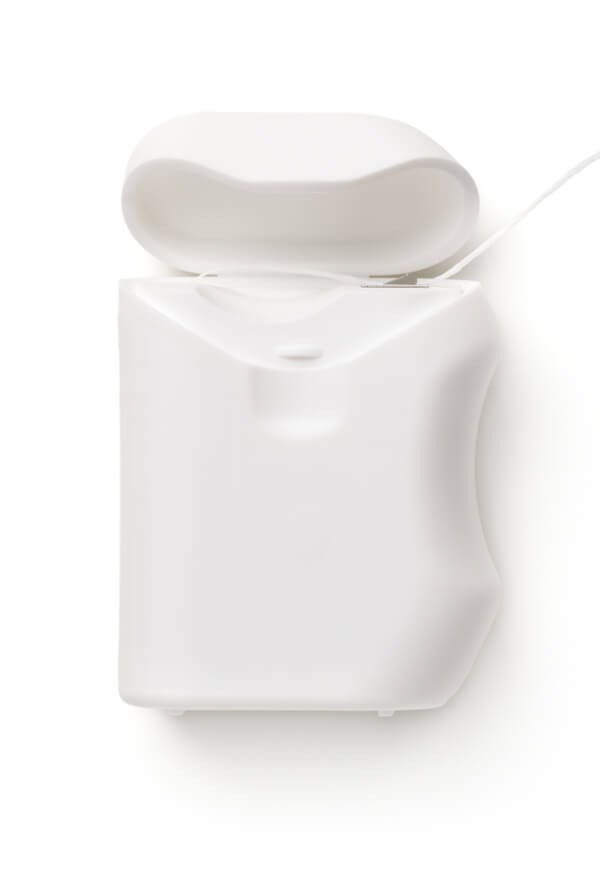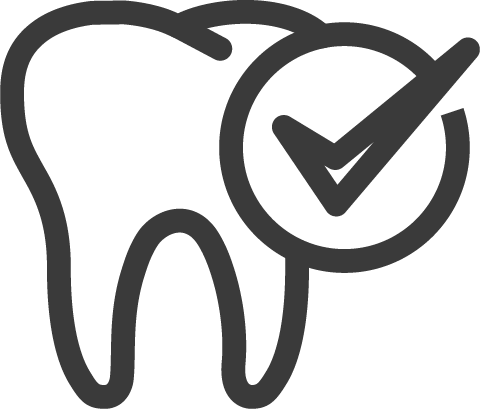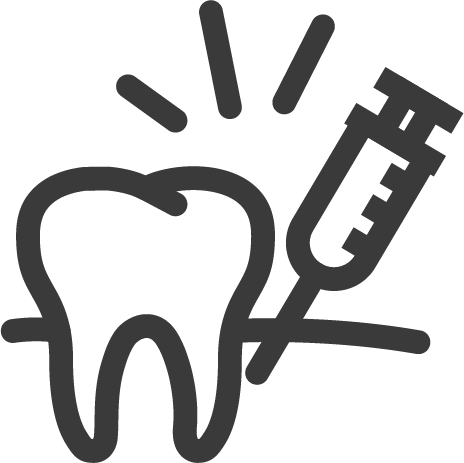PERIDONTAL CARE
WHAT IS PERIODONTAL CARE?
Periodontal care is the treatment of periodontal disease, more commonly known as gum disease. The stages of gum disease include gingivitis, periodontitis and advanced periodontitis. Although gingivitis can be treated with a more rigorous oral healthcare routine, periodontitis requires periodontal maintenance care, such as deep cleanings, or surgical methods from a professional dentist.

DID YOU KNOW…
Periodontal disease is chronic and incurable, but it can be controlled with maintenance care.
Ready To Schedule Your Appointment?
What to expect at your deep cleaning appointment

LOCAL ANESTHETIC
First, your mouth will be numbed with a local anesthetic to keep you comfortable during your treatment. Deep cleanings may cause more sensitivity for patients than regular dental cleanings, but you’ll be comfortable throughout the procedure with local anesthetic.

SCALING
In the next step of the process, your dentist will use special dental tools to “scale” tartar and plaque from between your teeth and below your gum line. The goal is to remove the harmful bacteria that causes gum disease.

ROOT PLANING
Once your teeth and gums have been cleaned, your dentist will “plane” and smooth the roots of your teeth. This process eliminates the pockets and pits that form below the roots of your teeth which harbor bad bacteria.
HOW IS GUM DISEASE TREATED?
- Deep Cleanings
- Gum Flap Or Pocket
Reduction Surgery - Soft Tissue Grafts
- Bone Grafting
- Guided Tissue Regeneration
Deep Cleanings
The first step in treating gum disease is a deep cleaning, also known as “scaling and root planing.” This treatment is used to remove the bacteria, plaque, and tartar that cause gum disease.
Dr. Awasthy will clean deeply between your teeth and gums, and will also smooth out the roots of your teeth to remove “pockets” that harbor the bacteria that cause gum disease. The process is minimally-invasive, and is usually conducted under local anesthesia (a numbing agent).
Typically, half of your mouth will be cleaned during each appointment in our dental office. Combined with antibiotic treatment, deep cleanings are usually enough to maintain most minor-to-moderate cases of gum disease.
Gum Flap Or Pocket
Reduction Surgery
This type of surgery is typically required for more advanced cases of gum disease that cannot be treated with deep cleaning alone. In this procedure, your dentist will surgically pull your gums away from your teeth and fold them back to gain direct access to the roots.
The area is cleaned and inflamed tissue is removed. The underlying bone structure may also be adjusted to eliminate bone defects, if necessary.
Then, your gums will be reattached using sutures and given time to heal. A periodontal dressing may also be applied to help the gums heal properly.
Soft Tissue Grafts
Soft tissue grafts, also known as “gum grafts,” are used to help restore your gums after severe gum recession caused by gum disease. In this procedure, soft tissue is removed from the roof of the mouth, and is then sutured into place around the teeth. The tissue heals and bonds with the existing gum tissue, restoring your gum line and resolving negative effects of gum recession, such as tooth sensitivity.
Bone Grafting
Bone grafting may be required if advanced periodontal disease has damaged your underlying jaw tissue. In this procedure, bone is taken from elsewhere in your body or from a donor, usually in the form of powder or small granules. Then, this bone matter is packed into the damaged bone area, and your natural bone heals around it, restoring your jaw.
Guided Tissue Regeneration
Guided Tissue Regeneration (GTR) is typically used alongside gum flap surgery. When this procedure is used, a specialized membrane is placed between the gum tissue and the bone before the gums are stitched and re-attached.
This membrane stops soft tissue (gum tissue) from growing into the gap between the teeth and gums. As it slowly dissolves, slower-growing bone tissue will grow into the area instead, which allows the jaw bone to regenerate itself.